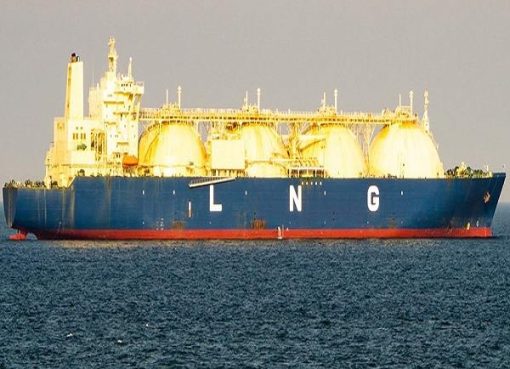Earlier this year, the London Metals Exchange announced plans to accept wares from small-scale miners in an attempt to ensure that those who rely on artisanal mining for a living can trade internationally. Some say this will help legitimatise the beleaguered industry, while others think it will encourage further illegal activity and human rights abuses. Who is right? We investigate.
The London Metals Exchange’s (LME) new roadmap for the responsible sourcing of metals was released in October this year. In addition to advocating for transparency across the supply chain, it confirmed that it would include artisanal and small scale mining (ASM) in its trade, a statement that has drawn the attention of industry members – for good and for bad.
Voicing its decision, LME argued that excluding commodities from conflict zones could ‘preemptively penalise’ labourers based on location, while their inclusion could in fact support economic development in those regions. Creating an unbiased and sustainable minerals sector has long been a priority for trading and government bodies, yet some argue that legitimising ASM will only channel money back into areas known for illicit activities.
While the future of ASM’s role in the global mining industry remains uncertain, calls for a change in the way it is approached are starting to be heard. Industry members are choosing their sides, and LME joins those demanding action, stating: “we may subject ourselves to criticism…But we believe that this topic is now too pressing for the LME not to be an active participant in this debate.”
The role of small-scale mining
A huge proportion of mining activity is made up of ASM, and the sector’s rise doesn’t show signs of stopping. Estimates from the Intergovernmental Forum on Mining, Minerals, Metals and Sustainable Development found the amount of people involved in ASM was 40.5 million in 2017, increasing almost six-fold from 2013. Similarly, data from the World Bank shows approximately 100 million people (representing both miners and their families) depend on ASM globally. This is compared to the approximately seven million reliant on industrial mining.
However, the sector’s lack of formal structure means it is often
approached with scepticism, and commodities sourced from these
operations are generally perceived as tainted by humanitarian and
environmental issues.
Such a perception is heightened by the isolated nature of many of these sites, with the sector’s rapid expansion leading to increasingly remote locations throughout sub-Saharan Africa, South America, and Southeast Asia being explored for minerals. As the sites become more isolated, so fears over the ability to maintain good practice have grown, and public interest in reports of child labour and unsafe working conditions has made areas like the cobalt-rich Democratic Republic of Congo (DRC) textbook examples of the dark side of mining.
The case for inclusion
Dylan McFarlane, senior program officer for mines to markets at the non-profit Pact, says that the scrutiny of these sites – and the resulting exclusion of ASM workers – is the entirely wrong tactic.
“In the DRC, Pact’s 15 years of experience working with artisanal miners has shown that supporting legitimate livelihoods increases stability,” says McFarlane.
“It allows governments to know what is being produced, where, and by whom, as well as formalising tax flows to local, regional and national government.”
As far as financially assisting ‘conflict’ zones, McFarlane says this perception is misguided.
“The idea of conflict minerals has been debunked by academics for a decade,” he says. “But the mainstream media hasn’t understood (or doesn’t want to, because mining media is overwhelmingly influenced by large-scale miners who have much to lose by legitimizing ASM). DELVE has been changing this narrative, and leaders like the LME, Trafigura, and Apple have demonstrated that supporting ASM can provide incredible development benefits to marginalised communities.”
Including ASM in the trading process is a popular solution, and efforts to establish transparent supply-chains are emerging from companies, traders and governments around the world. Earlier this year, legislation in the Philippines exempted small-scale gold miners from excise and income taxes when selling to the country’s central bank, allowing these independent workers to form a relationship with the trading body and paving the way for a more responsible supply-chain.
Measures such as these indicate a changing perception around ASM. Yet formalisation is not welcomed by everyone.
Is formalisation enough?
Mining engineering Professor from the University of British Columbia Marcello Veiga says simply including workers in the formal process will not solve environmental and humanitarian problems associated with the industry.
“The problem is not in the formalisation, the problem is with the education,” he says. “You have to educate the miners because they’re still using incredibly polluting methods. What’s the point in formalising if the people don’t know what they’re doing?”
Additionally, Veiga says the formalisation process is unnecessarily complex in many regions. Peruvian artisanal miners from Madre de Dios are required to have a certificate of training, a document certifying the absence of archeological remains, authorisation for the use of explosives, and accreditation as an artisanal mining enterprise – all in order to be formalised workers. In Colombia, artisanal miners need to pass 281 steps in an equally convoluted procedure.
“Small scale miners don’t yet have a mechanism in place because the government complicates the formalisation process,” he says. ““54% of labour in Latin America is informal, 86% of Africa is informal employment. It’s a reality. These miners have nothing from the government – no training and no support.”
In a paper on the subject, Veiga instead says that legislation needs to be changed in order to directly correlate taxes with ore production and discard ‘useless definitions’ of different types of miners.
“Quite frankly, it should be a simple process,” he says. “If you produce more, you pay more. If you produce less, you pay less. Who cares if the guy is conventional or artisanal?”
Veiga also argues for site-specific training projects for artisanal miners – enabling good practice through education according to workers’ environments and needs. LME’s roadmap also nods in this direction, indicating the need to establish schemes to actively assist small-scale miners. The body itself made a ‘tangible financial commitment’ to improving working conditions across mining communities, allocating money received from fines to charitable initiatives in the sector.
“In this way, and in tandem with our responsible sourcing requirements,” the report reads, “we believe that the metals trading community can have a direct and positive impact on the lives of those who underpin our global supply chain.”
Source: mining-technology










